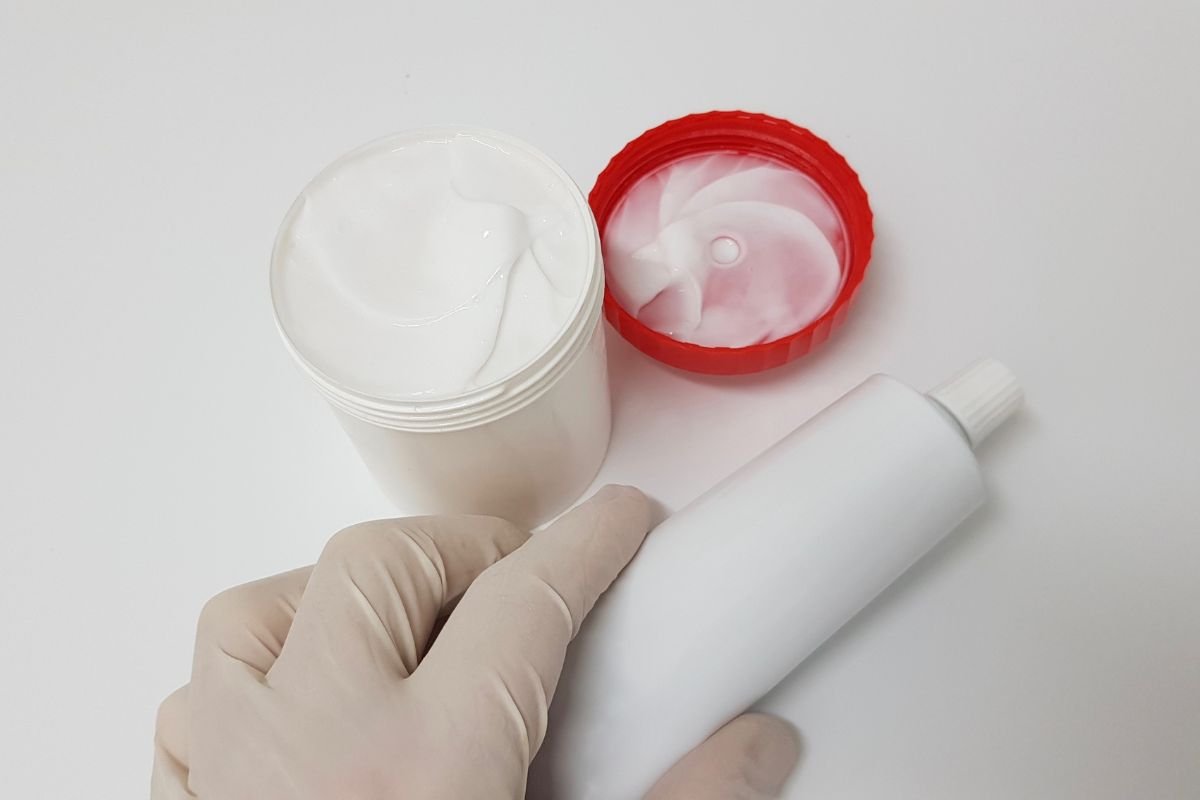Yeast infections are an all-too-common health complaint that are suffered by both men and women. While yeast infections can usually be treated with over-the-counter medications, some cases may not respond to treatment or may recur frequently.

If you’re wondering why your yeast infection won’t go away, there are a few potential causes that you should consider.
To help, we took a closer look at all you need to know about these unwanted infections and the steps you can take to find relief.
What Is A Yeast Infection?
Yeast infections, also known as candidiasis, are caused by an overgrowth of the fungus Candida albicans. This fungus is naturally present in the body and usually kept in check by beneficial bacteria.
However, certain factors can cause an imbalance in the body’s natural flora, allowing the yeast to grow unchecked and cause infection.
Common Causes Of Yeast Infections
Yeast infections can be caused by a variety of factors, including:
- Antibiotics
While antibiotics play a key role in eliminating infections in the body, they can also be a leading cause of yeast infections. In some cases, antibiotics can kill off beneficial bacteria in the body, allowing yeast to overgrow and cause infection.
- Poor Hygiene
Poor hygiene can also be a contributing factor to yeast infections. Not changing out of wet clothing or bathing suits after swimming, wearing tight-fitting clothes, and not showering regularly can all increase the risk of developing a yeast infection.
- Diabetes
Diabetes is another common cause of recurrent yeast infections. High blood sugar levels can feed the growth of Candida albicans, leading to infection.
- Hormonal Changes
Hormonal changes can also lead to an imbalance in the body’s natural flora, allowing yeast to overgrow and cause infection. This is especially common during pregnancy or menopause when hormone levels are fluctuating.
Treatment Options For Yeast Infections
If you’re wondering why your yeast infection won’t go away, it’s important to understand the underlying cause of the infection. Once you’ve identified the cause, there are a few treatment options that can help you find relief.
- Over-the-Counter Medications
The most common treatment for yeast infections is over-the-counter medications such as creams or suppositories (Find out Why Does Yeast Infection Cream Burn?). These medications can help to reduce the symptoms of the infection and help to clear it up.
- Prescription Medications
If your doctor has determined that you have a yeast infection, they may prescribe an antifungal medication such as fluconazole or clotrimazole (Find out How Long Does It Take Yeast Infection Pills To Work?). These medications work by killing the fungus that is causing the infection.
In some cases, your doctor may prescribe a stronger medication, such as an oral antifungal or an intravaginal cream.
These medications can be more effective in treating stubborn yeast infections that don’t respond to over-the-counter treatments.
It is important to take these medications exactly as prescribed in order to ensure that the infection is completely cleared up.
Additionally, it is important to note that these medications may not be effective against other types of infections, such as bacterial vaginosis or trichomoniasis.
- Lifestyle Changes
Making lifestyle changes can also help to reduce the risk of recurrent yeast infections. This includes avoiding tight-fitting clothing, wearing cotton underwear, and changing out of wet clothing or bathing suits after swimming.
Additionally, it’s important to practice good hygiene and shower regularly.

Other Potential Issues
If you have been battling a yeast infection for around a week or more with no sign that things are clearing up, then you may not be dealing with a yeast infection, but another condition.
Some common conditions that are typically confused with yeast infections include:
- Bacterial Vaginosis
Bacterial vaginosis is an infection caused by an overgrowth of bacteria in the vagina. It can cause symptoms similar to a yeast infection, such as itching, burning, and discharge.
However, it’s important to note that bacterial vaginosis is not caused by the same fungus that causes yeast infections.
- Trichomoniasis
Trichomoniasis is a sexually transmitted infection caused by a parasite. It can cause symptoms such as itching, burning, and discharge.
- Vulvitis
Vulvitis is an inflammation of the vulva, which can be caused by a variety of factors such as allergies, irritants, or infections. It can cause symptoms such as itching, burning, and redness.
- Chlamydia
Chlamydia is another sexually transmitted infection that can cause symptoms such as itching, burning, and discharge. It is usually caused by bacteria, not a fungus, and is contracted when engaging in unprotected sex with a person who is infected.
- Gonorrhoea
Gonorrhoea is another sexually transmitted infection that can cause symptoms such as itching, burning, and discharge.
Once again, it is typically the result of bacteria rather than a fungus and can be caught by having unprotected sex with an infected partner.
Treatment Options
If you suspect that your yeast infection may actually be something more serious, it is important to seek medical attention.
Your doctor can help to diagnose the underlying cause of your infection and provide you with the appropriate treatment. Depending on the cause, this may include antibiotics or other medications.
It is also important to note that some infections may require more than one round of treatment in order to completely clear up.
Additionally, if you are engaging in sexual activity, it is important to practice safe sex and use protection in order to reduce the risk of transmitting any infections – including yeast infections.
Final Thoughts
If you’ve been dealing with a yeast infection that won’t go away, it’s important to understand the underlying cause of the infection.
Once you’ve identified the cause, there are a few treatment options that can help you find relief. Over-the-counter medications and prescription medications can be effective in treating stubborn yeast infections.
- How Long To Wait For Sex After Yeast Infection Treatment - January 26, 2023
- Yeast Infection Vs Herpes - January 26, 2023
- Yeast Infection Vs STD - January 26, 2023










